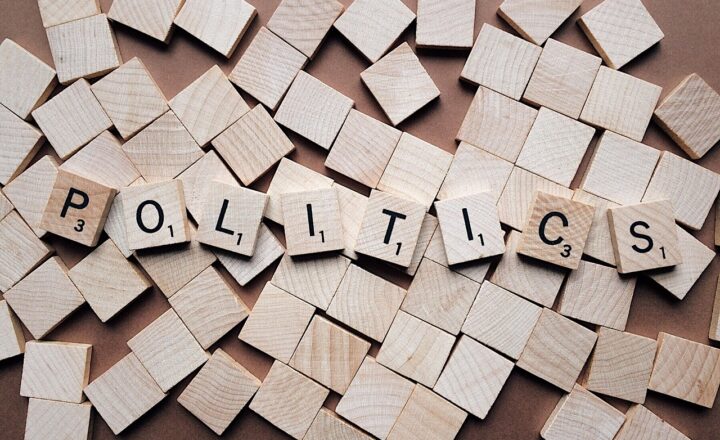
In recent years, political discourse has increasingly become polarized. Issues that once found common ground now seem to split communities, families, and nations. In this article, we aim to explore some of the most divisive political issues of our time, unraveling the complexities and backgrounds of these debates.
1. The Rise of Political Polarization
Political polarization is not a new phenomenon, but its intensification in today’s society is startling. According to a survey by the Pew Research Center, political parties have become more divided, with fewer individuals identifying as moderates in recent years.
Factors contributing to this shift include:
- Social Media: Platforms like Facebook and Twitter have created echo chambers, where users interact primarily with like-minded individuals, reinforcing their beliefs and biases.
- News Fragmentation: With diverse media outlets catering to specific ideologies, individuals increasingly consume news that aligns with their pre-existing views, further deepening ideological divides.
- Identity Politics: Issues regarding race, gender, and sexuality have taken center stage in political discussions, with individuals often prioritizing group identity over other factors when forming political opinions.
Understanding the roots of polarization is crucial to engaging in healthy political discourse, so it’s essential to dive deeper into these divisive issues.
2. Immigration: A Hot-button Issue
Immigration remains one of the most contentious issues in politics today. Debates over border security, pathways to citizenship, and refugee policies often evoke strong emotional responses. What contributes to this polarization?
- Economic Concerns: Many believe immigrants take jobs away from native citizens or depress wages. Economic arguments can stir fear and resentment towards immigrant communities. However, numerous studies indicate that immigrants often create jobs and contribute significantly to the economy.
- Cultural Anxiety: Concerns about losing cultural identity or values also drive immigration-related polarization. As societies diversify, apprehensions about integration and coexistence grow, leading some to favor stringent immigration laws.
- Humanitarian Perspectives: Conversely, many advocate for humane policies that support asylum seekers and undocumented individuals. Advocates argue that every person deserves the right to a safe home and better opportunities, challenging the perception of immigrants as threats.
The immigration debate illustrates how facts, fears, and values can clash to create deep divisions in political ideology.
3. Climate Change: A Divisive Reality
Climate change is another issue that sees a significant divide among political factions. While a substantial body of scientific evidence proves that climate change is real and driven by human activity, differing opinions on how to address it lead to fierce battles in politics.
- Economic Fears: The ramifications of climate policies, such as job losses in fossil fuel industries, evoke anxiety in certain communities. Many oppose aggressive climate initiatives for fear of economic consequences.
- Ideological Beliefs: Some view climate change activism as an ideological threat. The framing of the issue as a debate over regulation versus personal freedom polarizes opinions and creates an adversarial atmosphere.
- Generational Divide: Younger generations tend to advocate more strongly for immediate action against climate change while older generations may be more skeptical. This generational gap complicates consensus-building efforts on solutions.
Addressing climate change necessitates collaborative action across political lines, but the challenges posed by polarization make this daunting.
4. Healthcare: A Fundamental Right or Privilege?
Healthcare remains a fiercely debated issue, with differing views on whether it is a fundamental right or a privilege. The Affordable Care Act, often referred to as Obamacare, epitomizes the conflict over healthcare policies in the United States.
- Access vs. Cost: Critics argue that government involvement in healthcare leads to inefficiencies and increased costs, while proponents contend that access to affordable healthcare is crucial for every citizen’s well-being.
- Personal Responsibility versus Solidarity: Some argue that individuals should be responsible for their own healthcare coverage, while others advocate for a system based on solidarity, where the healthy support the sick through collective resources.
- Political Divides: The healthcare debate often aligns with broader political identities, as different parties emphasize contrasting values and ideologies concerning the role of government in citizens’ lives.
Fostering a constructive dialogue around healthcare requires empathy and understanding of differing perspectives on life’s basic needs and their implications for society.
5. Gun Control: Striking a Balance
Gun control generates significant discussion in political spheres, especially after mass shootings or other acts of violence. As advocates push for stricter gun laws, opponents view these measures as infringements on personal freedoms.
- Second Amendment Rights: Gun rights proponents argue that the Second Amendment protects their right to bear arms and that responsible gun ownership is paramount. This belief often extends to a broader notion of personal liberty and self-defense.
- Public Safety Concerns: Opponents of unrestricted gun access point to statistics linking gun ownership to higher rates of homicide and injury, advocating for stricter regulations to enhance community safety.
- Cultural Context: Gun culture varies across different regions, often influenced by history, lifestyle, and community norms. Responses to gun control reflect these cultural contexts, complicating conversations around policy changes.
Navigating the complexities of gun control necessitates honest conversations that transcend political divisions and prioritize shared community values.
Conclusion: Bridging the Divide
Politics has always been contentious, but the heightened polarization of issues today demands a collective effort towards understanding and collaboration. To foster healthier political discourse, we must embrace the following:
- Active Listening: Engage with those who hold different views without immediate judgment or dismissal. Listening can open doors to empathy and understanding, making it easier to bridge divides.
- Education and Awareness: Understanding the historical and social contexts behind divisive issues can facilitate more informed opinions. Educating oneself about differing perspectives aids in constructive conversations.
- Finding Common Ground: Despite differing views, people often share values and concerns. Focusing on commonalities can provide a foundation for cooperative problem-solving and reduces adversarial tension.
Rising above polarization requires effort, but by prioritizing open dialogue and mutual respect, we can navigate today’s divisive political landscape more effectively.






